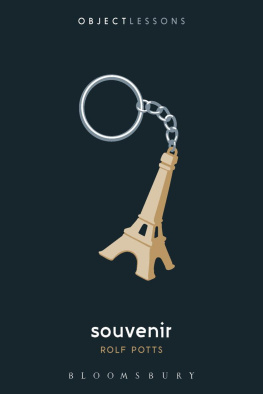Jean Henri Dunant
The ORIGIN of the RED CROSS
"Un Souvenir de Solferino"
BY
HENRI DUNANT
Translated from the French by
MRS. DAVID H. WRIGHT,
of the Philadelphia Chapter of the American
Red Cross, Independence Hall.
Philadelphia, Pa.
1911
THE JOHN C. WINSTON CO.
PHILADELPHIA, PA.
Copyright, 1911,
By Mrs. David H. Wright .
AMERICAN RED CROSS.
Washington , D. C., November 9, 1910.
Mrs. David H. Wright,
Philadelphia, Pa.
Dear Mrs. Wright:
I appreciate and thank you for your courtesy in dedicating to me, as President of the American Red Cross, this recent translation of Henri Dunant's "Un Souvenir de Solferino."
Whoever calls attention of the people to the sufferings and misery caused by war so that men realizing its results become loath to undertake it, performs a public service.
William Howard Taft
President American Red Cross.
EDITOR'S NOTE
So far as is known, this book of such far-reaching influence has never before been translated or published in English.
PREFACE
Henri Dunant, the famous author of "A Souvenir of Solferino," was born in Geneva in 1828.
The instruction and philanthropic principles received by him in his youth, together with his natural energy and power of organization, were a good foundation for the unfolding of the ideas and inclinations which led to his fertile acts.
In 1859 occurred the event which definitely impelled him to a course of action which did not discontinue during his whole life. A course of action for the mitigation of the sufferings caused by war, or from a broader point of view, for the commencement of the reign of peace.
This event was the battle of Solferino, when he first organized, in Castiglione, corps of volunteers to search for and nurse the wounded.
Having thus started the idea of a permanent organization of these voluntary bands of compassionate workers, and also of an international treaty agreement in regard to the wounded, he presented himselfto Marshal MacMahon and afterwards to Napoleon III, who became interested in the project of Dunant and immediately ordered his army no longer to make prisoners of the physicians and nurses of the enemy.
Soon Dunant organized an Aid Committee in Geneva, and shortly afterwards he published his "Souvenir of Solferino," which was enthusiastically received and greatly applauded.
He met, however, opposition and obstacles, principally from the French Minister of War.
The philanthropic ideas of this book were received with interest by many European sovereigns with whom Dunant had intercourse, either by correspondence or by conversation; he always propagated persistently his ideas in regard to the organization of a national permanent committee for the wounded, his International Treaty, and the neutralization of those injured in war (he developed in separate works his ideas which were outlined only in the "Souvenir").
The Geneva Society of Public Utility created a commission for the purpose of studying the question. Meanwhile Dunant had the opportunity to speak with the King of Saxony, and to persuade representativesof some other countries to take up the question with their respective sovereigns.
Dunant interested the governments so much in his project that various nations sent delegates to the International Conference, which was held in Geneva, in 1863, when it was decided to establish a National Committee, and when the desire was expressed that the neutralization of the physicians, nurses and injured should be provided by treaty, and for the adoption of a distinctive and uniform international emblem and flag for the hospital corps, and the unanimous thanks of this Conference were extended to Dunant.
To consider this subject, a diplomatic International Congress was held in 1864, at Geneva, by invitation of the Swiss Federate Counsel. The treaty there drafted accepted the projects of Dunant and the formation of Volunteer Aid Societies, later called Red Cross Societies, was recommended by the Convention to the signatory powers.
In the further development of the ideas of Dunant The Hague Conference, in 1899, extended the provisions of the Treaty of Geneva to naval warfare.
Thus, a single individual, inspired with the sentiment of kindness and compassion forhis fellow-creatures, by his own untiring energy attained the realization of his ideas, and aided in the progress of mankind toward peace.
Thus, truly all men, and above all, the workers for peace, owe to this laborer merited and everlasting gratitude and remembrance.
The recompense, however, arrived late.
In the zealous propaganda, for which, during four years, he edited pamphlets and articles in all languages, and traveled continuously through the whole of Europe, Dunant spent everything that he possessed, and, for many years, nothing more was heard of the modest and good man, to whom the approval of his conscience was all sufficient.
At last, in 1897, he was discovered in the Swiss village of Heiden, where he was living in misery, in a "Home" for old men, with almost no means other than a small pension received from the Empress of Russia.
The Baroness von Suttner sent at that time to the press of the whole world, and especially to those interested in International Peace, an appeal to raise a contribution of money to ease his last years. In 1901, whenthe Nobel-Peace-Prize, valued at 208,000 francs, was awarded for the first time, it was divided between Henri Dunant and Frederick Passy.
It is true that many peace workers did not approve of this decision of the Nobel Committee. They said in opposition, that the projects of Dunant not only were not pacific, but could even have the contrary effect. To lessen the terrors of war is really, according to them, to destroy the most effective means of turning men from it, and consequently tended to prolong the duration of its reign. One of the chief representatives of this idea, Signor H. H. Fried, said that the Geneva Convention was only a small concession by the governments to the new idea that is fighting against war.
Without doubt, they do not approve of the humane plan of Dunant, on the contrary, they think that it is not essentially peace-making; that it should not be recompensed by the first peace prize, and that it is dangerous to confuse pacification with simple humanitarianism.
The contrary opinion is shown by the following words, written by Signor Ruyssin, in the review "Peace by Right," at the time when Dunant received his prize:
"His glory has grown each year in proportion to all the lessening of suffering which his work has accomplished, to all the lives which it saves, and to all the self-devotion to which it gives birth.
"Henri Dunant has decreased the abomination of war; Frederick Passy fought to make it impossible. One has accomplished more; the other has created more remote, but brighter hopes. One has harvested already; the other sows for the future harvest; and so it would be arbitrary and unjust to compare such dissimilar lines of work, both equally meritorious. The accomplishment of the wishes of Nobel rightly placed identical crowns on the heads of two old men who employed their lives in fighting against war."
This disagreement is interesting in that it shows the contrary judgment to which different zealous peace workers were led in regard to the project of Dunant.
Whatever may be the conclusion of the reader, about the relation between it and the peace propaganda, he will certainly be of the opinion that "A Souvenir of Solferino," showing the abominations of war, is a useful instrument of the propaganda, and that the name of Dunant should be blessed, as







